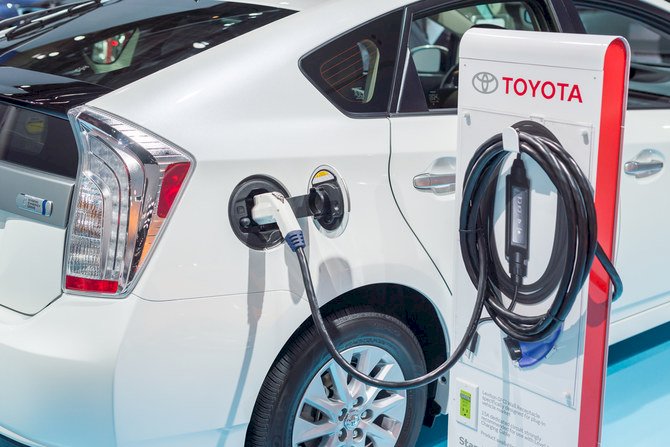Toyota looking forward to invest more than USD 35 billion for its battery-powered EVs by 2030
Toyota, which is recognized as one of the largest automakers, indicated that the company is looking forward to invest more than USD 35 billion for developing a full-fledged product lineup comprising 30 battery-powered electric vehicles by the end of 2030

Toyota, which is recognized as one of the largest automakers, indicated that the company is looking forward to invest more than USD 35 billion for developing a full-fledged product lineup comprising 30 battery-powered electric vehicles by the end of 2030. The company is aiming to enhance its global sales of battery-led electric vehicles by over 3.5 million units per year by 2030, as stated by the CEO Akio Toyoda. Presently, most of Toyota’s EV sales comprise hybrid electric cars powered with the help of an internal combustion engine and battery-led electric motors. Battery-only EVs have only been able to make up a fraction of the sales.
The Japanese automaker is anticipated to enhance its investments into battery technologies by USD 4.4 billion. It is expected to become a part of the company’s wider USD 37.49 billion investment into battery-led electric vehicles and is projected to include capital expenditure as well as R&D. Toyota is also planning on investing another USD 35 billion in other types of its EVs, including hybrid cars, fuel-cell electric vehicles and plug-in hybrids, which utilize hydrogen as a power generation source.
The company believes that adapting to the changes predicted for the future is much more important than actually trying to predict it, which is uncertain. For the company’s luxury brand Lexus, Toyota is aiming on developing battery-led EVs that may account for 100% of vehicle sales across Europe, China, and North America by 2030. Despite being the pioneers in the production of hybrid models, Toyota has been found to be relatively slow in its investment toward battery-only EVs in comparison to some of the global competitors like Ford and General Motors.




























